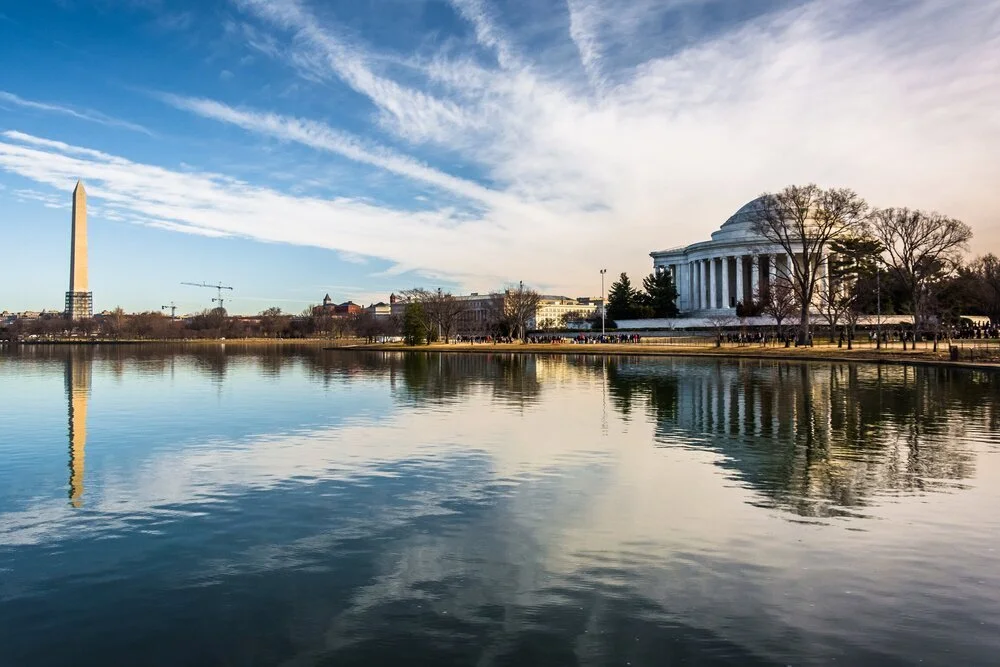Update: October 2021
In the months following this press release, Quantified Ventures and Sunnyside Energy discontinued our collaboration, by mutual consent.
Through the Texas Outcomes-Based Finance Challenge, Quantified Ventures is now working with the Edwards Aquifer Authority (EAA) to explore and implement alternative funding and financing strategies to enable its long-term aquifer sustainability program. Among the initiatives that EAA intends to pursue is expansion of its groundwater trust program to enable greater flexibility with regard to forbearance agreements and associated compensation. In addition, we are partnering to identify ways the authority can promote greater infiltration into the aquifer over the long term and expand regional water conservation practices.
Press Release
December 23, 2020
Media Contact:
Matt Lindsay, lindsay@quantifiedventures.com, 202.425.1792
Quantified Ventures Selects First Round of Environmental Projects in Texas Outcomes-Based Finance Challenge
Selected Projects Seek to Leverage Outcomes-Based Financing to Restore Comanche Springs’ Flow, Launch Green Burials Service to Preserve Coastal Prairie, and Transform an Urban Landfill into Utility-Scale and Community-Owned Solar Arrays
Comanche Springs in Fort Stockton, photo credit: Eric Siegmund
Landscape at Katy Prairie Conservancy, photo credit: Alisa Kline
Sunnyside Energy solar farm, community solar array, and other community amenities, image credit: Sunnyside Energy
WASHINGTON, DC — Three innovative proposals have been selected as first-round winners of the Texas Outcomes-Based Finance Challenge and will begin work with Quantified Ventures in 2021 to structure financial transactions that deliver nature-based, sustainable solutions to environmental and community issues, the Texas Challenge organizers announced today. The selected applicants seek outcomes-based capital to finance projects that provide environmental and community benefits, including water quantity and quality, land conservation, and clean energy.
Additional proposals will be selected in early 2021, dependent on the availability of additional grant funding. The three projects announced today are:
Restoring Comanche Springs and revitalizing the Fort Stockton community: A plan to return the perennial flow of Comanche Springs and generate local economic uplift through a market-based spring restoration program that finances a suite of restoration activities such as agricultural efficiencies, municipal water supply augmentation, and enhancement of a desert wetland. Comanche Springs, the City of Fort Stockton’s 30-million-gallon-a-day spring, has not flowed reliably since groundwater pumping accelerated in the 1950s. By restoring year-round flow, the historic bathhouse at Comanche Springs could be restored to the natural spring-swimming environment it once was, creating a tourist destination and restoring a cultural and ecological jewel. An estimated $5 million of outcomes-based capital is needed for the initial phase of this project. Partners on this proposal include the City of Fort Stockton, Texas Water Trade, the Middle Pecos Groundwater Conservation District, and Pecos County.
Protecting coastal prairie and ecosystems through green burial revenues: A plan to develop the first green cemetery in the Houston metro area to produce revenue that will fund conservation projects, safeguard healthy ecosystems, and protect large, connected pieces of coastal prairie. The green cemetery service will provide a space for burial of remains and for the perpetual preservation of a natural area in honor of the deceased. The cemetery itself would be managed like a nature preserve rather than a contemporary cemetery. The initiative involves acquiring land and restoring it to native prairie to make the land compatible with green burials. The Katy Prairie Conservancy anticipates approximately $5 million in outcomes-based capital is needed to acquire and restore land and create and market the new green cemetery organization. The intent is to develop a scalable model that is replicable by land trusts across the country.
Transforming an unmaintained urban landfill into a clean energy hub with utility-scale and community solar: A project to address power grid resilience, provide distributed generation in the urban load center, and enhance community access to clean energy through the development of a 50 MW utility-scale and a 2 MW community-owned solar array on a landfill in the Sunnyside neighborhood of Houston. The 240-acre landfill was closed in the early 1970s. The Sunnyside Energy team of engineers, landscape architects, neighborhood groups, and artists estimates transforming the unmaintained landfill to the utility-scale solar farm, complete with restoration of the landfill cover and bioretention areas to capture and slow stormwater runoff, will require an investment of $70 million. The community solar plan includes offers of discounted power to qualifying Sunnyside residents, solar installation training to a cohort of community residents, the use of local labor in the construction of both arrays, and battery back-up for the Sunnyside Community Center. The community will have a voice during the design and implementation of the project through the creation of the Sunnyside Energy Trust.
“We have been amazed by the quality of the applicants’ projects and the people working to address the most pressing environmental and community issues throughout Texas,” said Eric Letsinger, CEO of Quantified Ventures. “We are thrilled to collaborate with leading innovators in Texas to develop models and financial structures that can scale bold solutions that produce measurable impact.”
Outcomes-based financing links returns on investments to the achievement of measurable and independently verifiable social or environmental impacts. Private investors provide the upfront investment to deploy the solution. Following deployment and program evaluation, the institution(s) that benefits from the outcomes repay investors based on the volume and quality of outcomes produced (e.g., avoided stormwater runoff).
The Texas Outcomes-Based Finance Challenge is supported by grant funding from the Cynthia and George Mitchell Foundation, Harte Charitable Foundation, The Jacob and Terese Hershey Foundation, and Lyda Hill Philanthropies, and is conducted by Quantified Ventures in partnership with Land/Water Associates and the U.S. Endowment for Forestry and Communities.
The selected applicants will begin work with Quantified Ventures in January 2021 to structure the transactions, which are expected to come to fruition in approximately 12 to 16 months. Grant funding will cover Quantified Ventures’ costs to work with selected organizations to structure the outcomes-based financing from start to finish.
This is the fifth outcomes-based finance challenge conducted by Quantified Ventures. Previous challenges have resulted in transactions including a $14 million Environmental Impact Bond (EIB) in Atlanta to finance green infrastructure projects that manage stormwater in economically and environmentally distressed neighborhoods and a $12 million EIB in Hampton, VA, to fight flooding and water pollution in low- and moderate-income communities through nature-based flood resilience projects.
Comments from Organizations Selected through the Texas Outcomes-Based Finance Challenge
“Comanche Springs can serve as a groundwater bellwether in finding solutions to Texas’ groundwater challenges. We’re thrilled to be working with Quantified Ventures to meet this challenge,” said Fort Stockton Mayor Chris Alexander.
"All of us at the Katy Prairie Conservancy appreciate this opportunity to work with the community to leave a lasting legacy for the benefit of people, wildlife, and natural spaces," said Mary Anne Piacentini, president and chief executive of the Katy Prairie Conservancy.
Comments from Funders of the Texas Outcomes-Based Finance Challenge
“The selected projects demonstrate how outcomes-based financing can be an important tool to encourage innovative solutions for a sustainable future in Texas and beyond,” Randall Kempner, chief executive officer of the Austin-based Cynthia and George Mitchell Foundation, said. “We’re excited by the breadth of environmental solutions offered in this first set of initiatives and optimistic they will inspire more outcomes-based financing in Texas.”
“Complex challenges that impact communities, the environment, and the economy require outside-the-box thinking,” said Elizabeth Love, CEO of the Jacob and Terese Hershey Foundation. “We’re pleased to support the Texas Challenge and hope it spurs innovative approaches to funding equitable, nature-based solutions across the state.”
About Quantified Ventures
Quantified Ventures is an outcomes-based capital firm that develops public-private projects by structuring innovative financial transactions that drive transformational health, social, and environmental impact. As a certified B Corporation, we partner with corporations, governments, and nonprofits to solve some of the most intractable environmental, social, and health problems facing communities today. With DC Water, we pioneered the Environmental Impact Bond in 2016 to address local stormwater challenges and we continue to create innovative financial structures today. We operate four synergistic areas of practice: Agriculture, Forestry and Land Use, Health and Human Services, and Urban and Coastal Resilience. Additional background about the Texas Outcomes-Based Finance Challenge is available online.
About Land / Water Associates
Land / Water Associates partners with foundations, public park and conservation agencies, and nonprofit organizations on strategies for financing parks and conservation, real estate acquisition, and planning. Services include research and design of legislation to fund parks and land conservation, guidance on strategies to access public and private funding programs, plans for parks and land conservation, support with negotiations to purchase land, and counsel to foundations and philanthropists on grant opportunities and management.
About the U.S. Endowment for Forestry and Communities
The U.S. Endowment for Forestry and Communities is a not-for-profit public charity working collaboratively with partners in the public and private sectors to advance systemic, transformative, and sustainable change for the health and vitality of the nation’s working forests and forest-rich communities.









